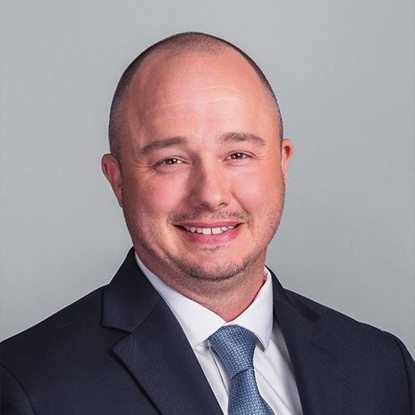
Orlando Equitable Distribution Attorneys
Protecting Your Property from Division – Call 800-822-5170 Today
"Equitable distribution" is the term that Florida divorce courts use when dividing property and liabilities in a divorce that were acquired during the marriage. The term "equitable distribution" means a fair distribution, which in some cases does not mean equal or 50/50 distribution. In the majority of divorce cases, however, the marital property and marital debts will be divided evenly by the court among the parties.
While this sounds simple, equitable distribution in Orlando it is often one of the most complicated issues raised in a divorce case.
In many cases our Orlando equitable distribution attorneys are faced with the following issues:
- Hidden assets or funds
- Dissipated assets or values of assets
- Opposing counsel intentionally under-valuing assets that client wishes to be awarded
- Opposing counsel intentionally over-valuing assets that you are seeking to be awarded by the court
- Co-mingling of non-marital assets or funds
What are some common examples of marital property and marital debt under Florida’s Equitable Distribution Statute?
Some common examples of marital property include:
- Assets and debts acquired the spouses during the marriage
- Enhancement of the value of a non-marital asset during the marriage due to the efforts of the other spouse
- Joint bank accounts
- Retirement benefits earned during the marriage
- A gift during the marriage from one spouse to another, and a joint bank account
The Equitable Distribution Process in Orlando FL
Our property division attorneys will present the facts of your case to assist the judge in determining the appropriate distribution of assets. Typically, the judge first determines what property should be classified as non-marital property and then awards each spouse their non-marital property; however, in determining non-marital property, the court will also need to determine if any of the non-marital property became co-mingled with marital property. If co-mingling has occurred, then the property's – or a portion of the properties' – value may be reclassified as "marital."
Some common examples of non-marital property being reclassified as marital property are:
- One party brings a home into the marriage and places the other party on the title to the home
- The party placed non-marital funds into a joint bank account
- A spouse takes marital funds and places them into an account that has only contained non-marital funds in it prior to that
Our Orlando property division lawyers will be able to assist you in determining the most likely classification of your assets. If you have questions regarding the equitable distribution of your assets, call our Orlando office today at 800-822-5170.
Factors in Determining Equitable Distribution in Orlando FL
Florida’s equitable distribution statute provides a list of factors the court must consider when distributing property and debts in a divorce case.
The factors that a family law judge must consider are:
- The contribution to the marriage by each spouse, including contributions to the care and education of the children and services as homemaker
- The economic circumstances of the parties
- The duration of the marriage
- Any interruption of personal careers or educational opportunities of either party
- The contribution of one spouse to the personal career or educational opportunity of the other spouse
- The desirability of retaining any asset, including an interest in a business, corporation, or professional practice, intact and free from any claim or interference by the other party
- The contribution of each spouse to the acquisition, enhancement, and production of income or the improvement of, or the incurring of liabilities to, both the marital assets and the non-marital assets of the parties
- The desirability of retaining the marital home as a residence for any dependent child of the marriage, or any other party, when it would be equitable to do so, it is in the best interest of the child or that party, and it is financially feasible for the parties to maintain the residence until the child is emancipated or until exclusive possession is otherwise terminated by a court of competent jurisdiction. In making this determination, the court shall first determine if it would be in the best interest of the dependent child to remain in the marital home; and, if not, whether other equities would be served by giving any other party exclusive use and possession of the marital home
- The intentional dissipation, waste, depletion, or destruction of marital assets after the filing of the petition or within 2 years prior to the filing of the petition
- Any other factors necessary to do equity and justice between the parties
Call Our Orlando Office – 800-822-5170
Our team has handled divorce and equitable distribution cases throughout Florida and have proven techniques to aggressively represent you in your divorce case. We often employ experts, such as respected forensic accountants and evaluators, to ensure you receive what you are entitled to in your divorce. Our Orlando divorce attorneys are at home in a courtroom and will use their trial advocacy skills to present your case to the court.
If your divorce and equitable distribution case goes to trial, know you will have respected and experienced trial counsel at your side. Contact us today and schedule your consultation. Let our team of aggressive and experienced attorneys start working for you today.
Our Core Values
-
The Client Comes First and All Else Will FollowWe take pride in delivering best-in-class client service and experience, understanding the privilege and responsibility we have when assisting clients and their families through legal matters. It is our highest obligation.
-
Authenticity and TransparencyWe believe in being transparent about who we are, with ourselves, each other, and our clients and partners. This authenticity builds trust and fosters strong relationships.
-
Relentless Pursuit of the WinWe achieve stellar results by focusing on personal and professional performance and goals. Our relentless pursuit ensures we deliver exceptional outcomes for our clients.
-
Growth MindsetWe continuously learn, grow, and improve as individuals, as a law firm, and as advocates for our clients. We set and exceed both personal and professional goals to ensure ongoing development.
-
OwnershipWe take responsibility for our work and actions, ensuring accountability in all that we do. Our commitment to ownership drives excellence and fosters a culture of trust and reliability.
-
Results DrivenWe focus on outcomes and disregard the level of effort required. We have the vision and the discipline to do the work and face challenges to make our vision a reality for our clients.
-
Respect and Celebration for One AnotherWe support each other with kindness and respect, emphasizing a positive work culture and celebrating along the way. We respect our clients and support them through their challenges.
-
Unquestionable IntegrityWe stand up for what’s right with consistently sound ethics and courageous honesty. Our integrity is the foundation of our practice and guides our actions and decisions.
-
We are in it TogetherWe are client and team-focused, committed to the firm’s vision, and act for the greater good. We carry our weight, bring others along, and act with civility, candor, and respect in all interactions.
-
ReputationReputation is everything. We strive to have the best personal and professional reputations. We want our reputation to precede us and for opposing counsel to know we are committed to fighting for our clients.
-
Community StewardshipWe embody the concept of giving back to the community. The Virga Law Firm is committed to supporting and improving the community through responsible and caring actions, setting an example of character.

Meet Your Attorneys
Compassionate Counsel, Relentless Representation.









